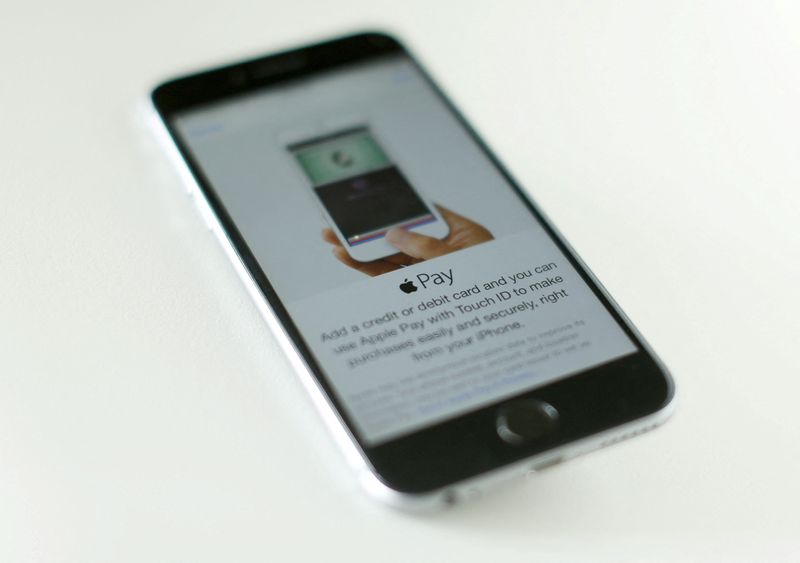Lawsuit accuses Apple of antitrust violations over Apple Pay
2022.07.19 00:41

FILE PHOTO: An Apple iPhone 6 with Apple Pay is shown in this photo illustration in Encinitas, California June 3, 2015. REUTERS/Mike Blake/File Photo
By Jonathan Stempel
(Reuters) – Apple Inc (NASDAQ:AAPL) was sued on Monday in a proposed class action by payment card issuers accusing the iPhone maker of abusing its market power in mobile devices to thwart competition for its Apple Pay mobile wallet.
According to a complaint filed in San Francisco federal court, Apple “coerces” consumers who use its smartphones, smart watches and tablets into using its own wallet for contactless payments, unlike makers of Android-based devices that let consumers choose wallets such as Google (NASDAQ:GOOGL) Pay and Samsung (KS:005930) Pay.
The plaintiff, Iowa’s Affinity Credit Union, said Apple’s anticompetitive conduct forces the more than 4,000 banks and credit unions that use Apple Pay to pay at least $1 billion of excess fees annually for the privilege.
It also said Apple’s conduct minimizes the incentive for the Cupertino, California-based company to make Apple Pay work better and make it more resistant to security breaches.
“Apple’s conduct harms not only issuers, but also consumers and competition as a whole,” the complaint said.
The lawsuit seeks unspecified triple damages, and a halt to Apple’s alleged anticompetitive conduct.
Apple did not immediately respond to requests for comment.
The company already faces a possible heavy fine after European Union regulators on May 2 said it had abused its dominance in iOS devices and mobile wallets by refusing to give payment rivals access to its technology.
According to the complaint, Apple charges issuers a 0.15% fee on credit transactions and a flat 0.5 cent fee on debit transactions using Apple Pay, while Android-based rivals charge nothing.
The plaintiff is represented by the law firms Hagens Berman Sobol Shapiro and Sperling & Slater.
Last August, they helped obtain a $100 million settlement for smaller iOS developers that claimed Apple overcharged them on commissions.
The case is Affinity Credit Union v Apple Inc, U.S. District Court, Northern District of California, No. 22-04174.








